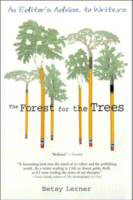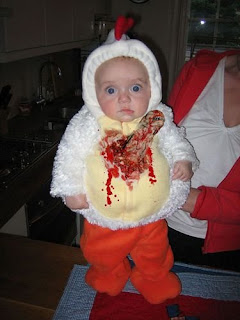 Whether you celebrate Halloween – Samhain – All Hallow’s Eve – Dress Like a Tart Day – Hide From The Neighbor Kids Day – Night of Culturally Sanctioned Vandalism – or Yay! I Get To Dress Like Batman Day, (*cough*RoryCobb*cough*) one thing’s for certain: someone…somewhere… is putting a dress on a Boston Terrier.
Whether you celebrate Halloween – Samhain – All Hallow’s Eve – Dress Like a Tart Day – Hide From The Neighbor Kids Day – Night of Culturally Sanctioned Vandalism – or Yay! I Get To Dress Like Batman Day, (*cough*RoryCobb*cough*) one thing’s for certain: someone…somewhere… is putting a dress on a Boston Terrier. Fun fact: the Irish brought Halloween to America! That’s right, before the Potato Famine, those Puritans were waaaaaaaay too boring to observe Halloween. It took the fun-loving, hard-drinking Irish to popularize a holiday that allows you to dress like a sexy leprechaun and get totally shitfaced. Thanks, Irish Ancestors!
In other news, it’s NaNoWriMo’en, the Eve of National Novel Writing Month, or as I like to call it, NaOnMoOuYeWheYoFriArAcInQuePloCha SetWorCaAbTheProYoMaOnYoNo. (Incidentally, I’ve decided that November is ALSO going to be National Stop Spending Your Retirement Money at Starbucks, Molly! Month. You can do the acronym yourself.)
According to Chris Baty, the founder of NaNoWriMo, over 90,000 people will be participating this year! Think about that: if those 90,000 people write, on average, just 25,000 words (half the monthly goal), the total words written will be 2,250,000,000 words in one month! Though Milan Kundera surely disapproves, I love it.
I love the convergence of so many voices telling their stories. I love the celebration of writing and creativity and caffeine-fueled enthusiastic madness.
 I love a massive group deadline (second only to April 15 in this country), and the chance to share your deadline-induced misery with 89,999 other people. I love posting wordcounts and feeling like someone other than my own prone-to-excuses lackadaisical conscience is holding me accountable for my productivity or lack thereof. I love reading what my friends write. In fact, I wish that ALL my friends would write at least one novel, particularly if that one novel is a thinly-disguised memoir. Even better if everyone in my family wrote a thinly-disguised memoir, and then let me read it. As long as it didn’t lead to prolonged discussions of commas, punctuated (ha!) with claims that “that’s what the nuns told me to do,” I think that reading novels written by family members would be wonderful.
I love a massive group deadline (second only to April 15 in this country), and the chance to share your deadline-induced misery with 89,999 other people. I love posting wordcounts and feeling like someone other than my own prone-to-excuses lackadaisical conscience is holding me accountable for my productivity or lack thereof. I love reading what my friends write. In fact, I wish that ALL my friends would write at least one novel, particularly if that one novel is a thinly-disguised memoir. Even better if everyone in my family wrote a thinly-disguised memoir, and then let me read it. As long as it didn’t lead to prolonged discussions of commas, punctuated (ha!) with claims that “that’s what the nuns told me to do,” I think that reading novels written by family members would be wonderful. In honor of NaNoWriMo’en, here are a few suggestions to get you going:
1. Go to the NaNo website and create a profile for yourself. This will provide untold hours of procrastination and happy distraction if (when) you need it. Also, you’ll get lovely encouraging emails from Chris Baty and others.
2. Choose the names of your characters before midnight tonight. That will keep you from wasting precious November minutes playing on the Social Security Baby Names website. (I’m one of 108 Mollys born in Wisconsin in 1980! Neat! We should have a party!)
3. Brainstorm possible settings, conflicts, situations, and random other characters that you can throw into your novel when you get stuck.
 Keep a list – flowchart – pictograph – whatever – near your writing place. If all else fails, make your main character fight some ninjas. This, I believe, is the most commonly-used plot problem solver in NaNoWriMo. I bet even Water for Elephants had some ninjas in its first draft.
Keep a list – flowchart – pictograph – whatever – near your writing place. If all else fails, make your main character fight some ninjas. This, I believe, is the most commonly-used plot problem solver in NaNoWriMo. I bet even Water for Elephants had some ninjas in its first draft. 4. Make yourself a goal calendar, charting out your target wordcount for each day of the month (or, if you’d rather, for key days: Nov 3 = 10%, Nov 10 = 33%, Nov 15 = 50%). This way, when you have 25,000 words written on November 18, you’ll know at a glance that you just need to write 5,008 words to catch up. Easy!
5. Plan to write a thinly-disguised memoir. If it worked for F. Scott Fitzgerald, it can work for you!
6. Write with other people. The NaNoWriMo website can hook you up with other people in your town who are writing. Even the tiniest town can have a NaNo write in. I had one when I lived in Tijeras, NM, population 501. Granted there were only three of us, but it was really great.
7. Have FUN. Amuse yourself. Write funny scenes, put your character in impossible situations and watch him work his way out, write vengeful portraits of people who have wronged you, complete with descriptions of their awful personalities and flawed bodies. Re-imagine scenes from your own life where the character does exactly the opposite of what you did. Send her to the moon. Go crazy!

8. Write! Turn off the TV, disconnect from the internet, turn off your phone. Write! Don’t worry if it sucks, don’t worry if it doesn’t even make sense, just write! Go forth and make words! Write write write!
Happy writing! And remember: VICTORY WAITS ON YOUR FINGERS!



























